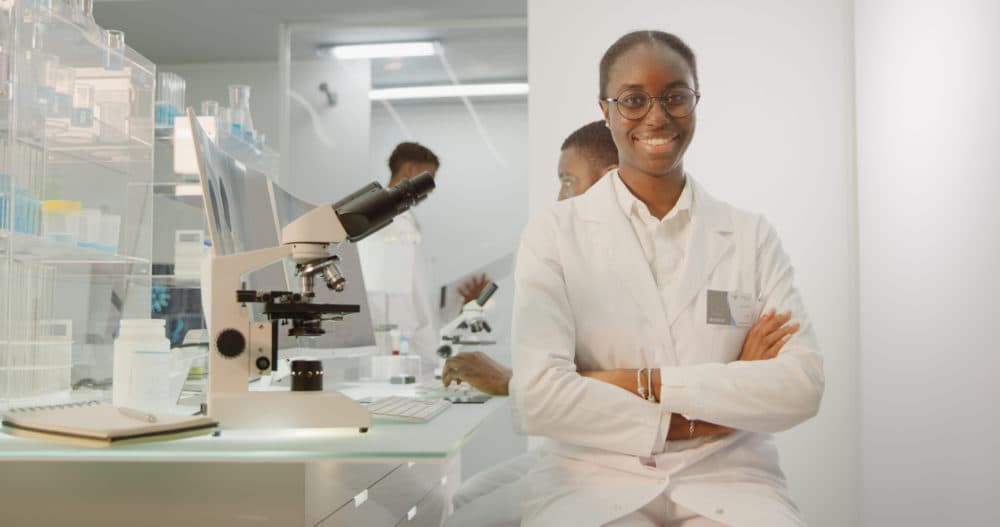Advertisement
Mixed report on gains among women in life sciences

In one of the largest industries in Massachusetts, gender diversity on the boards of biopharmaceutical companies has improved significantly over the past four years, but women have not made the same progress advancing into senior executive roles and Black and Latinx workers continue to be underrepresented in the workforce, according to a new industry survey.
The Massachusetts Biotechnology Council on Wednesday will release the results of its latest survey of diversity and equity in biopharmaceutical companies in the state, collecting data for the first time on the racial and ethnic backgrounds of the workforce.
Last year, the influential trade organization issued a open letter asking CEOs in the state's life sciences companies to commit to improving gender and racial equity in the industry. Of the 222 companies that signed the pledge, 85 participated in this most recent survey.
The survey found that participation of women on corporate boards grew by 164% to 37% of all board seats since the last survey in 2017, while gender diversity in C-Suite jobs remained flat at 24%.
"We see in this report after companies made public commitments on gender diversity on their boards and in management it's come to fruition," said MassBio CEO Joe Boncore, who recently left the Legislature to take over the trade group.
Boncore said building a pipeline for women to advance into senior management roles may take a little longer than diversifying corporate boards, but he is expecting to see progress soon.
"What we've seen and are expecting to see is when companies make it part of their business plan that they're building to, those decisions are made just like every other decision and (diversity, equity and inclusion) will no longer be an afterthought in the industry, but part of the business plan," he said.
The report also found that the diversity of the workforce in the biopharma industry roughly mirrored the state's population for white employees, but lagged when it came to Black and Latinx workers.
Asians represented about 16% of the workforce in companies surveyed by MassBio, compared to their 6% share of the state population, while other people of color made up just 15% of the industry workforce compared to 32% of the general population.
Advertisement
Warner Santiago, senior director of diversity, equity and inclusion at MassBIO, said one of the biggest challenges in the biopharmaceutical industry is a lack of resources at many of the smaller companies to dedicate to recruitment of diverse job candidates.
"This is ultimately why we're here," Santiago said. "We're here to advise our companies on best practices."
Only 56% of surveyed companies report having a company-wide diversity statement, and the same number of companies reported having completed an employee engagement survey, including questions specifically about equity and inclusion.
Even fewer companies — 24% of those surveyed — reported having established a diversity dashboard to measure its own progress internally over time.
One way to improve the diversity of a workforce is to recruit outside traditional talent pipelines, according to MassBio, but 65 of 83 companies who responded in the survey said they had never recruited from Historically Black Colleges and Universities, or higher education institutions that cater to tribal or Hispanic populations.
Similarly, only 20 of 82 companies said they had worked with "affinity organizations" like Color of Biotech or Latinos in Biotech to recruit for employees. The report stated that about 20% of the more than 220,000 students enrolled in HBCUs will earn degrees in science and engineering.
"We have a very detailed DEI resources center where companies can go and find a list of external partners that MassBio has that can help us recruit and retain diverse talent," Santiago said.
Boncore said that in addition to collecting data for companies to compare themselves against, MassBIO intends to hold its member organizations accountable for their diversity goals, and that starts with collecting data and getting them to publicly commit to a diverse and inclusive workforce.
MassBio has 1,400 member companies with 80,000 direct employees, and Boncore said the industry expects to add about 40,000 jobs in the next four years.
To meet its objectives, Boncore said MassBio must not only support science and technology education in schools, but retrain adults in the workforce for new careers in the life sciences. "We need to do more in underserved communities," he said.
Boncore mentioned Project On Ramp, a partnership between MassBio, the Massachusetts Life Sciences Center and other organizations, that encourages life science companies to hire Black and Latinx interns who are first generation college graduates and from low-income backgrounds.
Gov. Charlie Baker was also at Arranta Bio in Watertown on Tuesday touting the value of apprenticeships through MassBioEd, the sister organization of the Biotechnology Council, to meeting the talent demand of the industry over the next 10 years.
"Diverse teams make better decisions and have better shareholder returns, but we're also in the health care business and this pandemic has shown there are stark differences in communities of color. Where patient outcomes are the goal of all our companies, diverse workforces will have better outcomes for diverse patients," Boncore said.